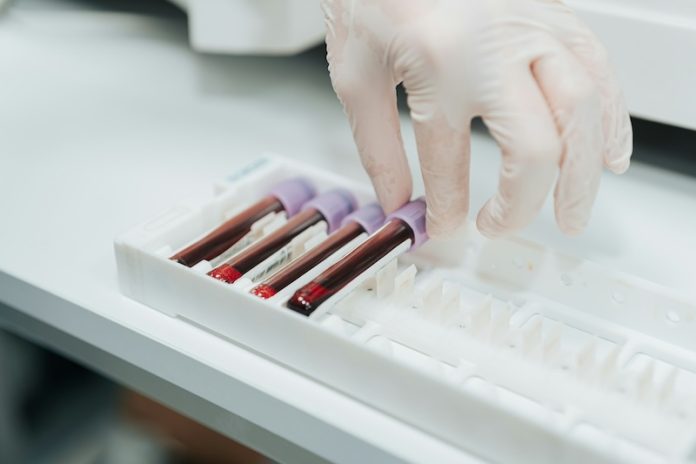
New blood tests for detecting colorectal cancer seem like an easy and convenient option compared to a colonoscopy. Instead of preparing your bowels and undergoing an invasive procedure, you only need to give a small blood sample. But are these blood tests reliable enough?
A study led by researchers at Stanford Medicine suggests that these new tests could help people who avoid traditional screening methods.
However, if too many people switch from colonoscopies or stool tests to blood tests, the death rate from colorectal cancer could increase. This is because colonoscopies and stool tests are still better at detecting early cancers and precancerous growths than blood tests.
Dr. Uri Ladabaum, a professor of gastroenterology and the lead author of the study, describes blood tests as an exciting development. However, he advises that people who are willing to undergo a colonoscopy or stool test should not switch to blood tests yet.
The study also emphasizes that blood tests will only be effective in reducing deaths if patients who receive a positive result follow up with a colonoscopy.
Why Screening Matters
Colorectal cancer is one of the most common cancers, and about 4% of American adults will be diagnosed with it at some point in their lives. Early detection through screening can help prevent the disease or catch it at a stage when treatment is more effective.
The U.S. Preventive Services Task Force recommends that adults between the ages of 45 and 75 get screened regularly. Traditionally, screening options include:
- Colonoscopy: Done every ten years, this test allows doctors to look inside the colon using a flexible tube with a camera. It also enables them to remove precancerous polyps before they turn into cancer.
- Stool tests: Done every one to three years, these detect small amounts of blood or cancer-related DNA in stool samples collected at home.
Even though these methods are effective, many people still avoid screening. In fact, one in three American adults in the recommended age range has never been screened. Experts hope that offering blood tests could encourage more people to get checked.
In 2014, the FDA approved the first stool-based DNA test for colorectal cancer screening. More recently, a blood test that looks for fragments of cancer DNA in the bloodstream was approved. However, these blood tests do not detect precancerous polyps as well as stool tests and colonoscopies do.
How the Tests Compare
The researchers analyzed data on six blood and stool tests currently available or under development, comparing them to colonoscopies. Using computer models, they estimated how many people would develop or die from colorectal cancer based on their screening method.
Among 100,000 people screened:
- Colonoscopy every 10 years: 1,543 cases of colorectal cancer; 672 deaths.
- Stool-based tests every 1-3 years: 2,181 to 2,498 cases; 904 to 1,025 deaths.
- Blood tests every 3 years: 4,310 to 4,365 cases; 1,604 to 1,679 deaths (more than twice as many deaths as with colonoscopy).
- No screening: 7,470 cases; 3,624 deaths.
The study also found that colonoscopies and stool-based tests were more cost-effective than blood tests. Dr. Ladabaum cautions that while blood tests are better than no screening at all, shifting from colonoscopies to blood tests could lead to worse outcomes and higher healthcare costs.
Patient Choices and Future Research
The study also examined how patients’ choices could impact cancer rates. The best scenario is that most people continue using colonoscopies or stool tests, and blood tests are only used by those who would otherwise avoid screening altogether.
More research is needed to see how people will actually use blood tests. If those who have never been screened start using them and follow up with colonoscopies when necessary, the tests could have a positive impact. However, if people who would have had a colonoscopy switch to blood tests instead, the overall effectiveness of screening could decline.
Blood tests may improve over time, and future versions might be more effective at detecting precancerous polyps. Until then, researchers recommend that people stick with the most effective screening methods available today.
Dr. Ladabaum and his team hope that more people get screened in any way possible. Different tests may work better for different people, and a combination of methods may be the best way to reduce colorectal cancer rates.
Study Analysis and Key Takeaways
This study highlights the importance of colorectal cancer screening and the risks of relying on less effective methods.
The key takeaway is that while blood tests are promising, they should not replace colonoscopies or stool tests for those who are willing and able to undergo them. Instead, blood tests should be an option for people who would otherwise avoid screening altogether.
One of the biggest concerns is that people might switch to blood tests simply because they are easier, not because they are better. If this happens, the effectiveness of cancer screening could decline, leading to more cases and deaths.
However, if blood tests improve and patients use them responsibly—getting follow-up colonoscopies when necessary—they could become a useful tool in the fight against colorectal cancer.
For now, the best approach is to encourage as many people as possible to get screened using the most effective methods available.
Colonoscopies remain the gold standard, but stool-based tests are a good alternative for those who prefer a non-invasive option. Blood tests may have a place in the future, but they are not yet a replacement for existing screening methods.
If you care about cancer, please read studies about common drugs for inflammation may help kill cancer, and statin drugs can starve cancer cells to death.
For more information about cancer, please see recent studies about these two things are key to surviving cancer and results showing common Indian fruit may slow down cancer growth.
The research findings can be found in Annals of Internal Medicine.
Copyright © 2025 Knowridge Science Report. All rights reserved.



